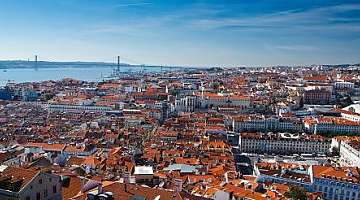Euro Zone’s Economic Crisis Ends in 2013, Portugal Experiences Growth

Lisbon
Published on
The euro zone will reverse the trend of economic slowdown in 2013, according to the economic forecasting and consultancy company Moody’s. In 2013, the eurozone will register a 0.2 percent growth in GDP in comparison to the -0.5 percent GDP decrease registered in 2012.
Germany will be one of the countries having the most sensitive positive influence over the euro zone GDP growth rate. The country’s annual GDP growth rate is predicted to be at 1.2 percent in 2013. The French GDP will register a mild growth, as well, contributing to the overall European recovery.
The two countries that will influence euro zone growth negatively in 2013 remain Greece and Spain. The Greek GDP will go down by as much as 4.2 percent because of the financial crisis that the country is currently going through. According to Moody’s the prospect of Greece leaving the euro zone will have an impact on the 2013 economic events.
Moody’s analysis envisions a scenario in which Spain experiences a banking crisis in 2013. If this comes true, other European countries will go through similar problems, which will have a definite effect on the economic growth predictions.
The results of the Moody’s report were confirmed by a Reuters economic poll. The prediction of ending economic crisis in 2013 is supported by statements of European Central Bank (ECB) President Mario Draghi. Draghi said that ECB would undertake any measure necessary to guarantee the stability of the euro.
According to the Reuters poll, a Greek decision to exit the euro zone was highly unlikely. The majority of the economists questioned said that the entire euro zone would benefit from the fact that Greece would remain a part of the economic union.
A report published by the European Commission predicts further economic strengthening and growth in 2013. The EC autumn economic forecast was presented on November 7, 2012. Both the euro zone and the European Union will experience stabilization in 2013, despite the fact that GDP divergences will be great among the different member states.
In 2014, the EU GDP will register a growth of 1.6 percent and the euro zone will witness a growth of 1.4 percent. Unemployment levels are also expected to continue decreasing within two years.
According to the autumn economic forecast, inflation will decrease by 1.8 percent in the euro zone in 2013.
The European Commission predicts that Portugal will be one of the countries to experience economic growth in 2013. Portugal will experience a growth in the investment rates during the middle of 2013. Accelerated export activity will result in even higher growth and a decrease in the unemployment rates during 2014. The exports of goods and services are predicted to grow by 2.7 percent in 2013 and by 4.8 percent in 2014.
By 2014, Portugal will contribute 0.2 percent to the euro zone GDP growth.
Resource Box:
Frederico Leng has been expert about Portugal Property & European economic news for a long time and and has worked for www.PortugalProperty.com as an Algarve sales manager for a couple of years. He is very interested in European economic developments and where Portugal is heading.
Published in: Money